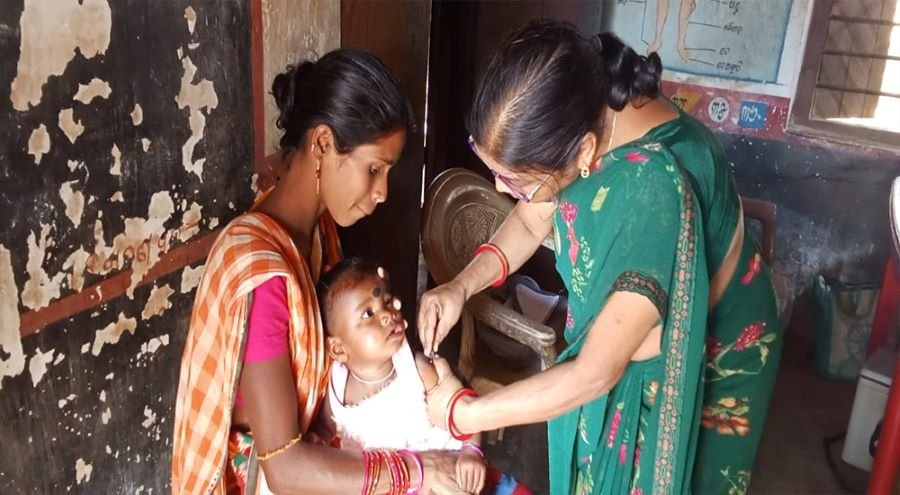MAKING A DIFFERENCE
MOVING TOWARDS DEMOGRAPHIC DIVIDEND
It is befitting to dedicate Vivekananda’s birthday, January 12, to the youth of the country whose entrepreneurial ambition and consumerist desires need be exposed to countervailing moral and ethical values for bringing sanity to their attitudes and actions. It makes for a compelling case as today’s youth are fed on a celebrity overdose in a market-driven consumerist culture.
Unlike other growing economies that face the risk of an ageing workforce, India is poised to become the world’s youngest country with 64 per cent of its population in the working age group by 2020. This ‘demographic dividend’ offers a great opportunity for the country. Not just by numbers, the youth make 34% contribution to the country’s Gross National Income as well.
India’s population is expected to exceed 1.3 billion by 2020 with a median age of 28 which is considerably less than the expected median ages of China and Japan. The working population of India, is expected to increase to 592 million by 2020, next only to China (776 million), pointing to the fact that youth will make a significant contribution to country’s economic development. However, growing up in a hyperconnected space of the virtual world this aspiration class needs directions to contribute to the efforts of nation building. Enhancing their labour force participation in improving productivity will only realize part of their energies. Since ideology has been substituted by technology, the youth rarely see the world beyond ‘themselves’.
Such generic transformation has created a generation very different from any known before. The youth find themselves distanced from the nation-building narrative of the post-independent era, and locate themselves in a world that is bursting with hope, love and an air of cherubic optimism. The National Youth Day is thus an opportunity to connect youth to the ethos of the country. Although January 12 is celebrated every year as the National Youth Day since 1985, the youth-targeted schemes and programmes of the government are predominantly guided by the National Youth Policy 2014 which seeks “to empower the youth of the country to achieve their full potential, and through them enable India to find its rightful place in the community of nations”.
The Government of India currently invests more than `92,000 Crore per annum on youth development programmes or approximately `2,710 per young individual per year, through youth-targeted (`37,000 crores for higher education, skill development, healthcare) and non-targeted (`55,000 crore food subsidies, employment) programmes. In addition, the State Governments and a number of other stakeholders are also working to support youth development and to enable productive youth participation. However, individual organizations working on youth issues in non-Government sector are small and fragmented, and there is a felt need of enhanced coordination between the various stakeholders. It must, however, be noted that all through history, youth have been the harbingers of change – from winning independence for nations, to creating new technologies that upset the status quo, to new forms of art, music and culture. Supporting and promoting the development of youth therefore is one of the foremost priorities, across all sectors and stakeholders.
The challenge is to engage youth in building a cadre that thinks and acts beyond the narrow confines of ‘self ’. The task is to help them rise above the ideology of consumption, open them to appreciate vast cultural diversity, and create a multi-polar environment where they effortlessly embrace differences of religion, sexual orientation and race. What could be better than the teachings of Swami Vivekananda to offer philosophical directions to youth, whose speech at the World’s Parliament of Religions in 1893 had made him popular as ‘Messenger of Indian Wisdom to the Western World’. Vivekananda believed that a country’s future depends on its youth, and his teachings focused on their development. Bereft of an ideological baggage than the previous generations, youth of the country are in a better position to accept such teachings provided these are packaged as products in the idiom that can be conveniently consumed by the present generation. Else, this generation will be the next big ‘disruptor’ because they have literally distanced themselves from the political and social spheres.
A study by J Walter Thompson offers a ray of hope, though. According to him today’s youth have seen the flipside of consumption, and are ‘more inspired by Malala than Beyonce’. This generation is characterized by ethical consumption habits, native digital technology use, entrepreneurial ambition, and progressive views. What they need is philosophical guidance in the right direction, and National Youth Day offers perfect platform to launch youth into the mainstream of ‘change’.






























